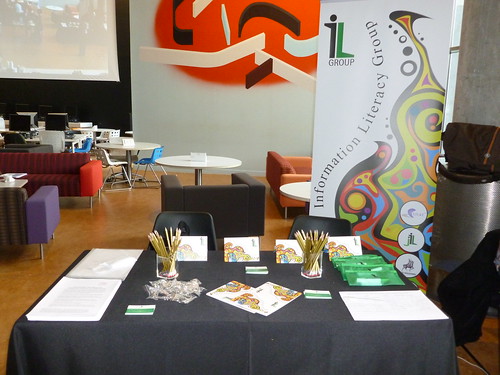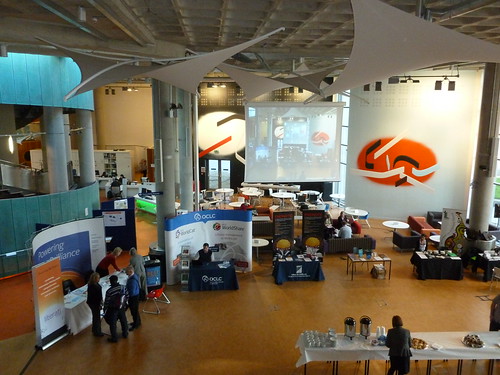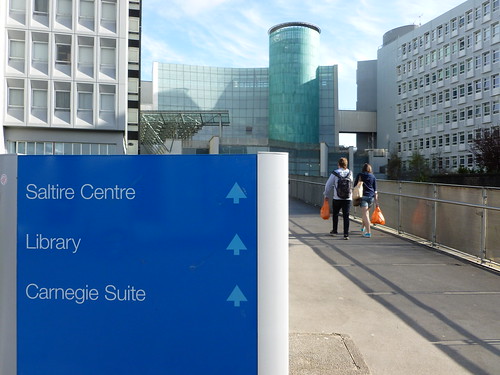 |
| CILIP CSG Information Literacy Group stand - we got many new members at LILAC! Find out how to join at http://www.cilip.org.uk/get-involved/special-interest-groups/community-services/subgroups/information-literacy/about/pages/default.aspx#joining |
Student centred active learning approach in an online information literacy credit course for doctoral students
The University of Tartu Library in Estonia has been running online, credit bearing courses since 2006. For PhD level, there is an "introduction to information research" course. Information literacy is presented as a transferable skill and is a university wide elective subject. The course concentrates on effective information search and management, is conducted within Moodle, is available in both Estonian and English, and offers beginner to advanced options. It takes nine weeks to complete.
Atlas.ti http://www.atlasti.com/ was used to analyse the course.
Feedback summary:
- course was challenging and time consuming
- search tips were useful
- students thought the course should be compulsory - for lecturers too
- good for getting rid of old/bad search habits
Information Literacy through Inquiry: Using
Problem-Based Learning in Information Literacy Instruction
One shot information literacy delivered in one hour.
Students suffer from "I Already Know That" syndrome so need to challenge them. To do this, Alan used modified problem based learning in a session that was peer observed. Students had to get into groups of three - a seeker, a scribe and a spokesperson. A research trigger was provided to drive the session - this could be anything relevant to the subject area. The presentation section provided an opportunity for reflection. It was about the process rather than the product. An energised atmosphere was observed in the room. Might be more POGIL (process oriented guided enquiry learning) rather than traditional PBL.
One shot information literacy delivered in one hour.
Students suffer from "I Already Know That" syndrome so need to challenge them. To do this, Alan used modified problem based learning in a session that was peer observed. Students had to get into groups of three - a seeker, a scribe and a spokesperson. A research trigger was provided to drive the session - this could be anything relevant to the subject area. The presentation section provided an opportunity for reflection. It was about the process rather than the product. An energised atmosphere was observed in the room. Might be more POGIL (process oriented guided enquiry learning) rather than traditional PBL.
Information literacy through inquiry: using problem-based learning in information literacy instruction
View more presentations from Alan Carbery
Round up of LILAC 2012
The slides from LILAC 2012 are available at http://www.slideshare.net/infolit_group/
Round up of LILAC 2012
The slides from LILAC 2012 are available at http://www.slideshare.net/infolit_group/
 |
| http://www.flickr.com/photos/mirjana/10885990/ |
APRIL is the cruellest month, breeding
Lilacs out of the dead land, mixing
Memory and desire, stirring
Dull roots with spring rain.
Dull roots with spring rain.
Eliot, T.S., The Waste Land, Project Gutenberg, eBook Collection (EBSCOhost), EBSCOhost, viewed 26 April 2012.
April is definitely not the cruelest month when you get to attend LILAC! By far the best conference I have ever attended. I've gained lots of inspiration for my work and my PG Cert. I also caught up with old friends and made new ones. Many thanks to the LILAC committee for all their hard work in organising this outstanding event!




